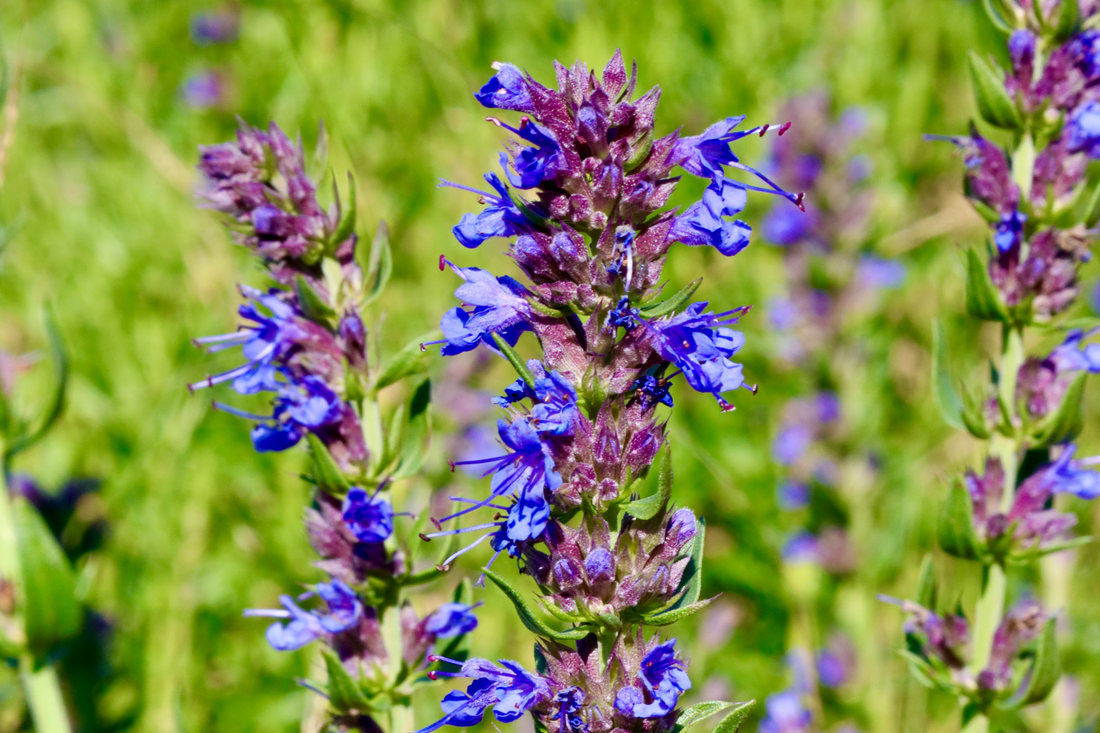
Hysope : 10 faits amusants qui vous feront aimer cette herbe !
1. Racines anciennes
L'hysope a été mentionnée dans des textes anciens comme le Bible, où elle était connue comme une herbe purificatrice. En fait, elle était utilisée dans les rituels religieux pour purifier et purifier !
2. Une partie de la famille de la menthe
Bien que l'hysope semble assez différente, elle fait en fait partie de la famille des famille de la menthe, ainsi que d'autres herbes comme la menthe poivrée, la menthe verte et l'origan. Si vous aimez les saveurs mentholées, l'hysope ravira vos papilles !
3. Herbe avec une touche « épicée »
Le thé à l'hysope a une saveur audacieuse, légèrement saveur amère Avec des notes de menthe et d'anis. Moins sucrée ou douce que certaines tisanes, elle est un ajout intéressant à votre collection de thés !
4. Peut aider contre le rhume et la grippe
Comme l'hysope contient des composés qui agissent comme expectorants, elle aide à détacher le mucus et les mucosités, c'est pourquoi c'est un thé incontournable pendant la saison du rhume et de la grippe pour aider à dégager vos voies respiratoires.
5. Un remède historique pour la digestion
Au Moyen Âge, la tisane d'hysope était utilisée pour apaiser les troubles digestifs. Elle était considérée comme un remède contre l'indigestion, les ballonnements et même les gaz, ce qui en faisait une plante digestive exceptionnelle bien avant les probiotiques modernes !
6. A été utilisé dans les cosmétiques
L'hysope n'était pas seulement utilisée à des fins médicinales ; elle était également incluse dans les produits de beauté. Les anciens Égyptiens utilisaient l'hysope l'huile dans leurs routines de soins de la peau pour ses propriétés nettoyantes et anti-inflammatoires.
7. Un somnifère naturel
Non seulement la tisane d'hysope soulage les maux physiques, mais elle est aussi considérée comme un sédatif léger. Elle peut aider à calmer le système nerveux, ce qui en fait une excellente tisane du soir pour ceux qui ont besoin de se détendre et de se relaxer.
8. Riche en antioxydants
La tisane d'hysope regorge d'antioxydants qui aident à combattre les radicaux libres dans l'organisme. Ces antioxydants peuvent ralentir le processus de vieillissement et protéger les cellules des dommages, ce qui lui vaut d'être parfois surnommée « tisane de beauté » .
9. Peut être utilisé pour fabriquer de l'huile d'hysope
L'huile essentielle d'hysope est extraite des feuilles et des fleurs de la plante. Elle est utilisée en aromathérapie, pour les soins de la peau et même dans les huiles de massage grâce à ses propriétés calmantes, anti-inflammatoires et antibactériennes !
10. Un symbole de pureté et de protection
Outre son usage religieux, l'hysope est depuis longtemps considérée comme un symbole de purification. Dans certaines cultures, on en suspendait chez soi pour se protéger des mauvaises énergies ou des maladies.
Intrigué par le bienfaits de l'hysope pour la santé ou de sa longue histoire. Vous y trouverez des produits de la plus haute qualité. Hysope biologique autour directement de notre ferme, cultivé en utilisant des pratiques régénératrices.